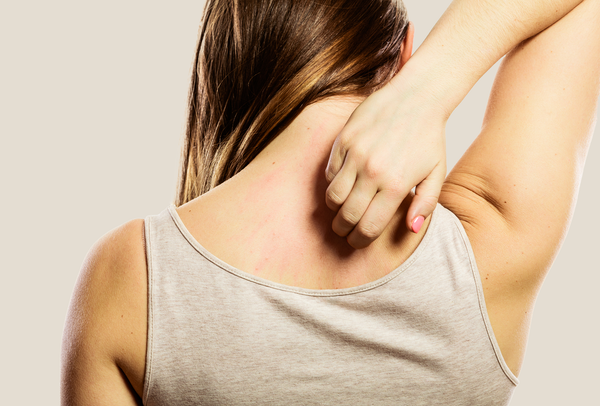Skin conditions like acne and eczema are extremely common. They also come along with stigma that affects how we perceive the person experiencing them–including ourselves. Acne and eczema are no fault of our own, yet they can make us feel embarrassed or insecure about the appearance of our skin. After experiencing these feelings about her own breakouts (which she traced back to haircare products), Harvard-trained dermatologist Dr. Iris Rubin created SEEN. Her goal: Developing a line of luxury haircare that wouldn’t compromise the health of the skin.
Today, acne affects up to 50 million Americans (teenagers and adults alike) while over 31 million have some form of eczema. (We’re not sure how many, but we’re fairly certain a good number of people have both.) With so many people experiencing these conditions, SEEN is on a mission to help restore confidence and optimize skin health with science-backed products that won’t clog pores or irritate sensitive skin.
A recent report called “The Burden of Skin Disease in Europe” published in the Journal of the European Academy of Dermatology and Venereology (JEADV) revealed some statistics about the impact chronic skin conditions can have on mental health. More than half of Europeans report having a chronic skin condition, and this study analyzed 19,015 individuals.
- 88% of those with a skin condition considered it embarrassing in their personal life
- 83% said their skin was embarrassing in their professional life
- 48% of those with acne said their skin condition impaired their professional life
Another study looked specifically at the impact acne has on daily life, and researchers found that acne has at least a moderate effect in 37% of patients. Acne and acne scarring were found to cause embarrassment, affect daily and social activities, dictate clothing choices, and impact performance at work or school. In order to improve these negative side effects of acne, researchers emphasize the importance of early treatment.
This early treatment for acne and eczema can range from at-home skincare to seeking the help of a dermatologist. Regardless of the path you choose, don’t forget that your haircare comes in contact with the skin. If your haircare routine includes pore-clogging ingredients, this has the potential to make acne worse. For those with eczema-prone skin, irritants, allergens, harsh ingredients, and even fragrance can contribute to a flare up.
This is where SEEN comes in. All of our products are safe for sensitive skin and non-comedogenic, which means they won’t clog pores. A study published in the Journal of Drugs in Dermatology showed that after switching to non-medicated SEENShampoo and Conditioner, 70% with body acne improved and 52% with face acne improved.*
SEEN is also a wise choice for those with sensitive and eczema-prone skin, since our formulas are gentle on the skin and respect the skin’s barrier. All of our fragrance-free products have been awarded the National Eczema Association’s Seal of Acceptance™, and our Fragrance-Free Shampoo, Fragrance-Free Conditioner, and fragrance-free Magic Serum have also received SkinSAFE’s coveted “Trusted Choice” seals.
Dr. Rubin’s tips for managing acne and eczema
When you have a skin condition like acne or eczema, there are several ways to help keep your skin calm–and boost your confidence.
- If you haven’t already, try an over-the-counter anti-acne regimen. If this doesn’t provide the improvement you’re looking for, seek the help of a dermatologist.
- Make sure all of your products are working for you and not against you–and this includes your haircare. (Many formulas contain pore-clogging ingredients, irritants, and/or allergens.)
- Look for products that are safe for sensitive, acne-prone, and eczema-prone skin.
Offering haircare, skincare, and scalp care, SEEN is designed to meet the needs of all types of skin, including sensitive, acne-prone, and eczema-prone. We want to help reduce the stigma associated with skin conditions by providing products that don’t make matters worse (and in the case of acne, proven to make it better in the case of those who have been using pore-clogging haircare). Here, everyone is SEEN!
*In a dermatologist-graded clinical study, 27 subjects with mild to moderate acne used SEEN shampoo and conditioner as a regimen for 8 weeks. SEEN is non-medicated and can help those for whom hair products are contributing to acne.




